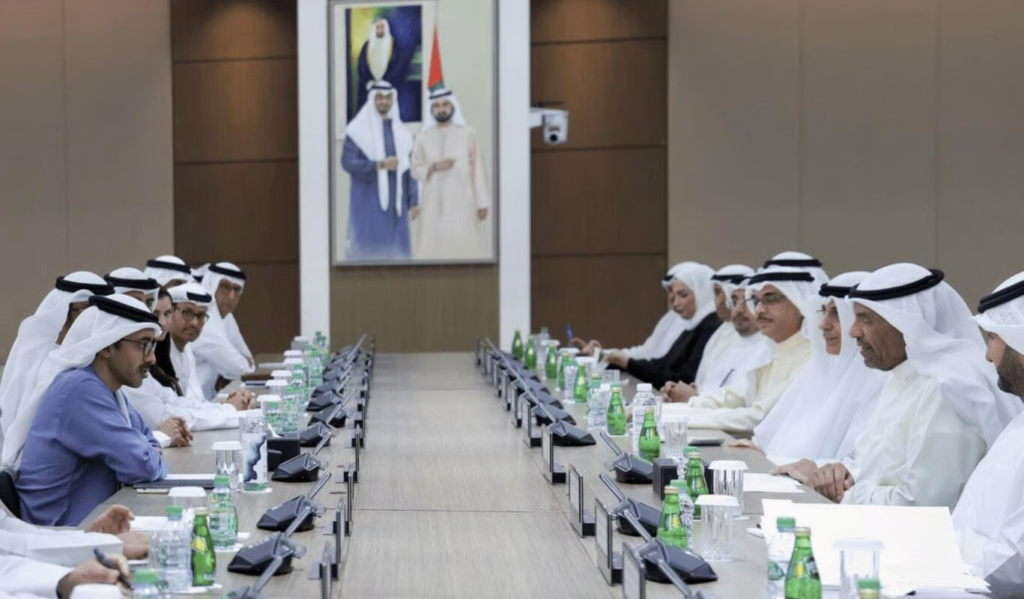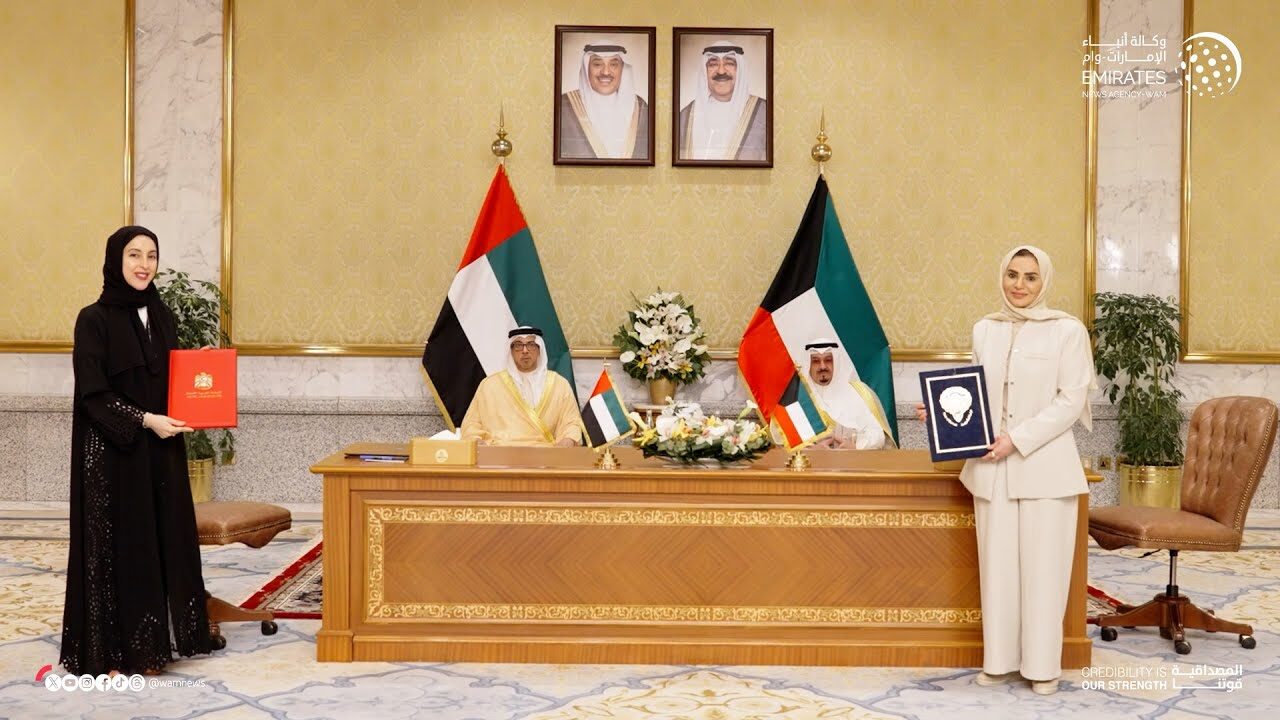In a significant boost to Gulf cooperation, UAE Kuwait agreements were signed on Monday, covering a wide range of sectors including defence, healthcare, education, infrastructure, artificial intelligence (AI), and energy. The total scope of these agreements signals a major step in strengthening the economic, diplomatic, and technological partnership between the two nations.
The signing ceremony took place at Bayan Palace in Kuwait during the official visit of UAE Vice President Sheikh Mansour bin Zayed Al Nahyan. The agreements were formalized in the presence of Kuwait’s Prime Minister Sheikh Ahmad Abdullah Al-Ahmad Al-Sabah.
Major Sectors Covered Under the UAE Kuwait Agreements
Health, Education, and Social Development

Among the UAE Kuwait agreements, several memoranda of understanding (MoUs) were signed between the two countries’ Ministries of Health to improve collaboration in medical services, research, and public health policies.
In education, both nations pledged to enhance cooperation between academic institutions and promote joint research and development initiatives.
A social development agreement aims to support community programs and build partnerships in social welfare, a step that will benefit citizens across both Gulf nations.
Infrastructure, Energy, and Transport
The UAE Kuwait agreements also included critical sectors such as oil, gas, roads, and future energy projects. These MoUs cover land transport systems, energy transition strategies, and cooperation on water and electricity projects. This highlights a mutual commitment toward building resilient, eco-friendly infrastructure in line with both countries’ long-term development visions.
Innovation, AI, and Industry
One standout area among the UAE Kuwait agreements is innovation. A specific MoU focused on industry and advanced technology was signed to encourage knowledge exchange, industrial modernization, and collaboration in emerging technologies.
A major highlight was Kuwait joining the Artificial Intelligence Infrastructure Partnership, a global project involving tech giants such as Microsoft, BlackRock, MGX, and Global Infrastructure Partners. This move positions both nations at the forefront of AI advancement in the region.
Dhs9 Billion Naval Deal Strengthens Defence Ties
The most high-profile of the UAE Kuwait agreements is a Dhs9 billion (approx. $2.45 billion) naval contract signed between Kuwait’s Ministry of Defence and the UAE’s EDGE Group, a leading defence technology firm.
Under the deal, Kuwait will procure several “Falaj 3” class missile boats. This contract is the largest naval shipbuilding export in the region and one of the highest-valued globally.
Abu Dhabi Ship Building (ADSB), a subsidiary of EDGE, will be the primary builder. The vessels will be equipped with integrated logistics support and in-service support, alongside ammunition supply — showcasing EDGE’s full-spectrum defence capabilities.
Hamad Al Marar, EDGE’s Managing Director and CEO, emphasized the strategic importance of the deal. “This partnership marks a new era in regional defence collaboration,” he stated. “It not only strengthens military ties between our nations but also elevates the UAE’s defence manufacturing on the global stage.”
Legal, Security, and Investment Cooperation
The UAE Kuwait agreements included initiatives for legal and humanitarian affairs, particularly in tackling human trafficking and strengthening rule of law through joint frameworks.
Both countries’ Ministries of Interior signed MoUs on data security, cyber cooperation, and secure information-sharing. These are expected to improve regional cyber resilience and border security cooperation.
In the investment sector, the UAE Minister of Investment and the Director General of Kuwait’s Direct Investment Promotion Authority agreed to a joint framework to promote bilateral investment flows. This aims to unlock fresh capital, support startups, and encourage long-term business partnerships.
A New Chapter in Bilateral Relations

Sheikh Mansour’s visit reflects the evolving and deepening bond between the UAE and Kuwait. Officials from both sides have stressed that these UAE Kuwait agreements are just the beginning of more ambitious projects and collaborations.
With the global landscape shifting and regional geopolitics evolving, the comprehensive scope of these MoUs indicates both countries’ desire to remain united and resilient. From clean energy and AI to defence and public services, this multifaceted approach is aligned with long-term goals under UAE Vision 2031 and Kuwait Vision 2035.
The UAE Kuwait agreements will likely serve as a model for future Gulf Cooperation Council (GCC) collaborations, setting a precedent for structured, strategic, and mutually beneficial partnerships.
Conclusion
The recently signed UAE Kuwait agreements, including the landmark Dhs9 billion naval contract, reflect more than just diplomacy — they are a roadmap for integrated growth, innovation, and regional leadership. Whether in AI, defence, education, or energy, both nations have set the stage for a new era of collaboration that promises lasting impact on the Gulf region and beyond.
Read More- Sharjah: 400 New Government Jobs Approved After Eid Break



